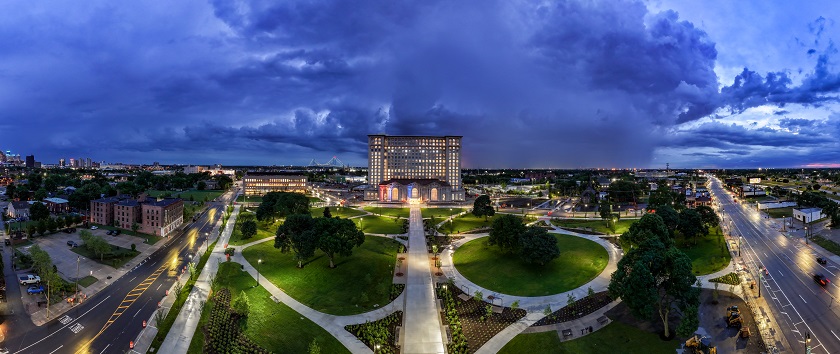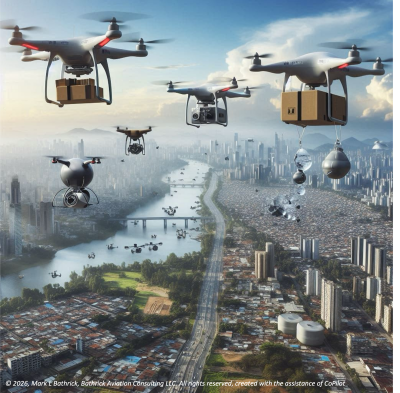The recent launch of Michigan Central and the Michigan Department of Transportation’s (MDOT) Advanced Aerial Innovation Region brings light to what the UAV industry can provide at a community level and gives a look into the future of unmanned aviation in urban areas. The initiative aims to bring Michigan to the forefront of aerial mobility by partnering with start-ups and the Detroit community to allow the use of commercial drones to be a standard practice in the state. It plans to execute this by testing aerial mobility solutions such as drone deliveries and infrastructure inspections at low-altitude levels and within a 3-mile radius of Michigan Central.
Carolina Pluszczynski, Michigan Central’s Chief Operating Officer, mentioned that the project prioritizes ideas that bridge equity gaps, improve safety and make it easier for people to access the goods and services they need. She further explained that these efforts stem from a bigger focus on what it means to enable connections between people and their communities.
“What we're creating here is this real-world environment, where we're leveraging the community around us to understand what the major problems are and trying to bring people together to solve those problems,” Pluszczynski told Commercial UAV News.
As Michigan Central drives this initiative, it partners with MDOT who will look at the safety aspects and the physical boundaries of the project. They have also partnered with Airspace Link who will provide the data and mapping platform to aid pilots during flight and provide the community with flight path information. Building and running an initiative of this caliber is no easy feat and one that requires collaboration on every level.
“There’s no single company or organization that can do this on their own,” Pluszczynski said. “That’s why we've created an open platform where people can collaborate.”
A third and vital partner includes Newlab, a company that build and supports co-working spaces dedicated to innovation for tech start-ups. In 2023, Newlab opened a second headquarters in Detroit and is now the brick-and-mortar home of the Advanced Aerial Innovation initiative.
Part of Michigan Central’s mission is to not only increase mobility in an aerial sense, but also to increase mobility and accessibility to those in the community. That increase is something that will be reflected in ways communities can physically see but will also be able to experience.
“When we think about the intersection of mobility and society, we know that it's not just mobility solutions,” Pluszczynski explained. “It’s really about mobility in terms of socio-economic mobility as well. How do we make sure that we are looking at ways to lift up the communities?”
Answers to those questions are connected to the outcomes of the initiative that strive to give the community more accessibility. That can mean anything from access to medications through a medical drone delivery to inspection innovations that increase safety to training for a career in the drone industry. In all of these examples and more, Michigan Central is opening doors for its community.
Michigan Central combines their goals of supporting their community and securing commercial drone use as a precedent by working directly with local high school students. The initiative has taken a hands-on approach at ensuring that the people in their area are educated and excited about UAVs and the career opportunities they have.
“We've hosted drone day for high school students to be able to come and fly them, to let them open their mind, and get them curious about the technology,” Pluszczynski mentioned. “Then, we'll start series of programs where you can get FAA certified to fly drones through this process.”
There are plenty of conversations that happen around the future of the airspace and what that looks like for commercial drones, but there is not always a clear path as to how we get there. This initiative is setting the pace and taking actions towards what they want the future of the airspace in their state to look like in the next 7 years.














Comments